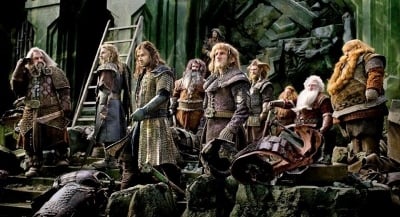‘Ida’- The First Polish Film To Receive Academy Award For Best Foreign Film
April 14, 2015
[Featured image courtesy of idigitaltimes.com]
This year’s Academy Award for Best Foreign Language Film was “Ida”, an unpretentious short movie, beautifully filmed and with superb performances from the leading female actresses. The movie received positive feedback worldwide, especially in praising the excellent work of its two wonderful actresses. It is the first Polish film to be awarded with an Academy Award for a Best Foreign Movie.

“Ida” is set in Poland in the mid-60s and it is the story of a young novice, Anna (Agata Trzebuchowska) who, before taking vows to become a nun, is advised by her prioress that she should meet her aunt before making a decision. Anna had never met her family before; she had been abandoned when she was a baby at the convent, and all of her life was reduced by the rules and obligations imposed by the nuns. She barely had any contact with the world that lay outside the convent walls, which made her very naïve and innocent concerning mundane things.
Her aunt Wanda (Agata Kulesza) has a respectable job as a judge. However, her reputation is not so impeccable. She is a free sexually liberal woman in her late 40s, who talks the talk and is not intimidated by anyone or anything. Wanda tells Anna that her real name is Ida Lebenstein and that her parents were Jews killed by the Nazis in World War II. This revelation shocks Anna deeply as she had never thought about her parents before, and this makes her confront her own beliefs and ideas. In a bid to learn more about her past and establish for her own identity and personality, Ida and Wanda embark upon a journey together that will mark their lives forever. Having totally different opinions on absolutely every single topic, their personalities collide more than once, but they learn vital lessons from each other. Wanda starts to reconsider her decisions for the first time in years and confronts a past that had always haunted her, while Ida experiences an unexplored world that she would have otherwise completely ignored.

[Image courtesy of www.theartsdesk.com]
This movie is not only about the life of two women, but also the specific period when the country was experiencing and suffering from the consequences of World War II. Poland was a country that deeply suffered the fanaticism of the Nazis, and whose population; which was overwhelmingly Catholic, but also Jewish; was persecuted and ultimately killed. This was a topic that everyone knew of but nobody wanted to talk about, because as the film shows, many people were forced to reveal where the Jews were hiding for their own safety and in order to survive.
The film does not criticise or judge the characters’ different positions or opinions; it simply shows how people would behave under such difficult circumstances, and how everyone reacts differently in the same situation. It is not a long film, but it has a lasting impact for a number of reasons. First of all, it’s beautiful photography. The whole movie is filmed in black and white, which gives us the sense of going back in time. Secondly, the development of the characters throughout the story; they begin at one particular point in their lives and end up somewhere else completely. Finally, the story is very moving, because we see everything through the eyes of the inexperienced novice Anna/Ida who is keen to learn more about her recently discovered past. Despite being labelled as a “road movie”, this movie is exactly the opposite you can expect from the genre; it is slow, dramatic, but deeply moving.
Lucía Vázquez Bonome




Comments